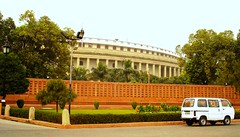The Union Budget 2012-13 on Friday proposed allowing external commercial borrowing for low cost affordable housing projects.
Presenting the Budget in the Lok Sabha, the Finance Minister, Mr Pranabh Mukherjee, also proposed setting up of a Credit Guarantee Trust Fund to ensure better flow of institutional credit for housing loans.
The Minister also proposed to enhance provisions under Rural Housing Fund from Rs 3,000 crore to Rs 4,000 crore besides extending the scheme of interest subvention of 1 per cent on housing loan up to Rs 15 lakh where the cost of the house does not exceed Rs 25 lakh, for another year.
Meanwhile, real estate players were disappointed with the Budget saying it failed to highlight the role of the housing sector in the economy.
“The proposal of bringing in an umbrella tax structure to the cement industry will increase the cost of housing and will negate the development process. Also providing ECB to affordable housing is a minor respite to the sector. There is an inherent risk of liquidity drying up wherein the exemption of capital gains tax to invest in small and medium enterprises may result in cash out from real estate,” Mr Lalit Jain, President, CREDAI, the industry body of real estate players, said.
The sector also said that the increase in service tax will increase the cost of construction by Rs 50-100 per sq feet.
According to Mr Anurag Mathur, Managing Director, Cushman & Wakefield India, “The increase in allocation in infrastructure implies a clear intent on enhancing the urbanisation process as well as providing a support to the slowing industrial sector. At the same time the increase in the service tax from 10 per cent to 12 per cent would lead to additional burden on the tenants as the service tax on rentals has remained unchanged.”
